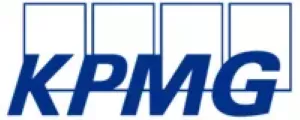On 8 May, the European Commission has adopted a second amendment to extend the scope of the State aid Temporary Framework adopted on 19 March 2020 to enable Member States to support the economy in the context of the coronavirus outbreak. This follows a first amendment adopted on 3 April 2020.
This second amendment sets out criteria based on which Member States can provide recapitalisations and subordinated debt to companies in need. The criteria are aimed at protecting the level playing field in the EU and ensuring that distortion of competition is limited, there is transparency in the use of aid received and there is compliance with other policy objectives such as environmental, digital transformation and prevention of fraud, tax evasion and avoidance.
The extended rules apply until the end of December 2020 for subordinated debt and until the end of June 2021 for recapitalisation measures.
Recapitalisation aid to companies
The amendment enables well-targeted public interventions in the form of recapitalisation aid to those non-financial companies in need, to help reduce the risk to the EU economy. Companies that were already in difficulty on 31 December 2019 are not eligible for aid under the Temporary Framework. Several safeguards are in place.
(i) Conditions on the necessity, appropriateness and size of intervention: Recapitalisation aid should only be granted if no other appropriate solution is available. It must also be in the common interest to intervene. The aid must be limited to enabling the viability of the company and should not go beyond restoring the beneficiary's capital structure to before the coronavirus outbreak.
(ii) Conditions on the State's entry in the capital of companies and remuneration: The State must be sufficiently remunerated for the risks it assumes. Moreover, the remuneration mechanism needs to incentivise beneficiaries and/or their owners to buy out the shares acquired by the State using State aid to ensure the temporary nature of the State's intervention.
(iii) Conditions regarding the exit of the State from the capital of the companies concerned: Beneficiaries and Member States are required to develop an exit strategy, in particular as regards large companies that have received significant recapitalisation aid from the State.
(iv) Conditions regarding governance: There are certain bans on dividends and share buybacks and limitations on management remuneration including a ban on bonus payments.
(v) Prohibition of cross-subsidisation and acquisition ban: There are limitations on the use of the aid to support integrated companies and to acquire certain business interests.
(vi) Public transparency and reporting: Aid amounts and identity of beneficiaries must be published. Beneficiaries, other than SMEs, have additional reporting obligations related to the aid.
Originally published 11 May 2020.
The content of this article is intended to provide a general guide to the subject matter. Specialist advice should be sought about your specific circumstances.


